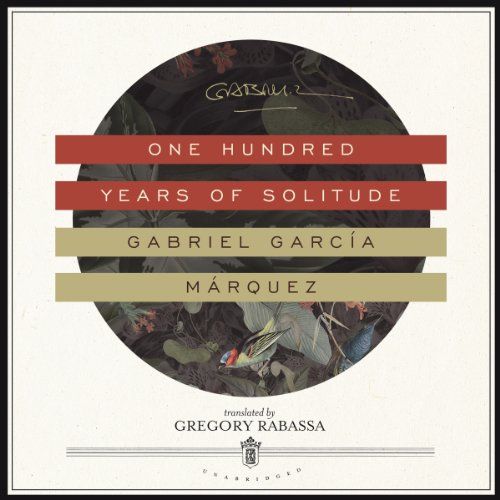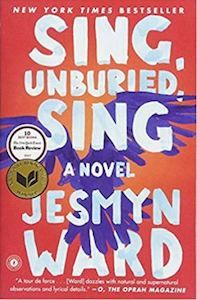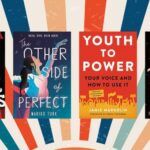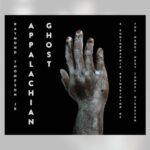
Does Tracking Reading Make It Less Enjoyable?
Deep into the summer of 2014, I began tracking my reading in a cherished spreadsheet. I started simple by logging dates, titles, and authors. I created columns for notes and references. In them, I recorded what resonated with me from an underwater scene to details about flowers, food, and music; that a book made me laugh; how I first learned of the work; which bookstore I found the title at; favorite essays; craft decisions I admired from narrative structures to quotation mark-less dialogue.
As my work became more entwined with books, my tracking expanded in detail. I documented genres, partial to complete plots, important events, settings, character names and relationships, content warnings, themes, comparable titles, and more. In April of 2019, I joined Goodreads and the Goodreads Reading Challenge, a quick tradition. Since that motivated decision to track my reading nine Augusts ago, my annual reading has risen year after year.
At Duke University’s Fuqua School of Business, Professor Jordan Etkin researched the effects of tracking activities including coloring, walking, and reading (which we at Book Riot are, of course, extra interested in). Overall, Etkin “found that while measuring prompts us to do more, it can make us enjoy activities less.” Etkin observed that while tracking coloring, walking, and reading can “increase” activity, “[e]njoyable activities can become almost like a job, by focusing on the outcomes of things that used to be fun.”
Typically in my reading life, I juggle one fiction, nonfiction, and poetry title. Every day, I update my reading progress on Goodreads, which stirs up good feelings. In January, my annual Goodreads goal can loom in my mind until I get on track or ahead. As I read, I jot down copious notes, which I also consider tracking my reading, in a document or on a Post-it. For my personal spreadsheet, I compile those comments, on average, weekly. Of everything, constantly gathering and organizing information sometimes frustrates me. Occasionally, I procrastinate, and the information collects, which can induce stress. Because everything I read is potentially for work, I track my reading 100% of the time, even when I reread. In case, flowers forbid, this Virgo missed something.
So, I make an exception. This year, I’ve spent so much time reading new-to-me books, stopping every page or two to record reading observations, that I found myself craving a sweeping saga to escape with. Missing a doorstopper’s weight in my hands, I return to One Hundred Years of Solitude, one of my most reread novels, exclusively for pleasure. Why not one of the myriad unread titles on my shelves or book cart or mail pile? My thinking: If I turn to something familiar, I won’t bookmark it to scribble impressions or feel compelled to update my reading progress.
For the much-needed break, I listen to the audiobook while reading along in my paperback copy — which is, according to my love, “more sticky flags than pages” — to busy my hands, trained to capture details. As planned, I don’t pen notes. Some bonuses: I ignore texts, emails, and social media. Rarely distracted, the focus of it resembles a date with myself: such sweet attention and self-care. I think I’ve discovered a new preferred way of reading.
As the story of the Buendías in Macondo streams into my ears, I follow along with my eyes, appreciating the rainbow of highlighted text and the circles I drew in the margins. In bed with Gabriel García Márquez’s novel one new-moon morning, four dried, pink petals flitter from between the pages onto my stomach, and it seems magical. Mainly, I left the book on my nightstand and floated off to dreams after a chapter. And yet, I, out of muscle memory and perhaps obsession, still updated my progress in Goodreads. Granting myself a tiny intermission from my extensive tracking refreshed me, something I hope to do more with go-to rereads and books destined to become go-to rereads, like Alexander Chee’s How to Write an Autobiographical Novel; Kali Fajardo-Anstine’s Sabrina & Corina; K. Iver’s Short Film Starring My Beloved’s Red Bronco; and Jesmyn Ward’s Sing, Unburied, Sing.
In Out With the Spreadsheets! On Simplifying My Reading Tracking, Patricia Thang, after abandoning “meticulous data tracking and spreadsheets” for recording reading with a pen and notebook, writes,
“Right now, I’m reading what I want to read, when I want to read it, for as long (or as little) as I can handle at a given time. And for me, that’s all reading should be. I need to learn to enjoy it again first before trying to look at it through my analytical lens once more, if at all.”
Naturally, I wonder about other Rioters’ stances on tracking their reading. In a brief survey, all 35 participants reported tracking their reading. Twenty-two participants track their reading on Goodreads. Of those, 11 participate in the Goodreads Reading Challenge. Fourteen use Book Riot’s Reading Log, eight use personal spreadsheets and documents, six use Storygraph, and eight use other modes such as Bookly and writing in a bullet journal by hand.
On average, 12 participants track their reading daily, nine sporadically, nine weekly, two monthly, and five describe other frequencies: three after they finish a book, another after “3ish” books, and another a few times a week. Twenty-one reported tracking their reading makes them feel happy, 10 inspired, eight neutral, five discouraged, three stressed, and two mentioned feeling other emotions. One participant expressed experiencing “all” of the listed emotions. Three feel positive emotions because tracking their reading helps them remember and access what they have read. Another participant feels happy or stressed depending on the state of their titles-to-review shelf, another experiences “ALL THE GOOD FEELINGS” from happy and inspired to “excited” and “accomplished” and “calm,” while another “gasp[s] in joy and sometimes disbelief” when reflecting on past reads. Since tracking their reading, no one reported solely a decrease in their reading. Fourteen saw an increase and 15 a variation.
As usual, Rioters continually inspire me. In the above-mentioned Our Reading Lives essay, Thang reminds me to read what and when I want to, to seek and prioritize enjoyment. So, I pen a reminder to myself to read solely for pleasure in my planner. And when asked about patterns in their reading for the survey, six Rioters commented that tracking reading not only inspired them to read more but to also read more diversely and widely. A goal to always hold close, something to forever strive for. Like us at Book Riot, whether you track your reading or not, may the time you spend with books mostly bring you happiness.
If reading tracking and challenges intrigue you, please check out Introducing The 2023 Reading Log, 10 Book Journals to Track Your Reading in 2023, and The Joy Of Reading Challenges Is Reading by yours truly.









